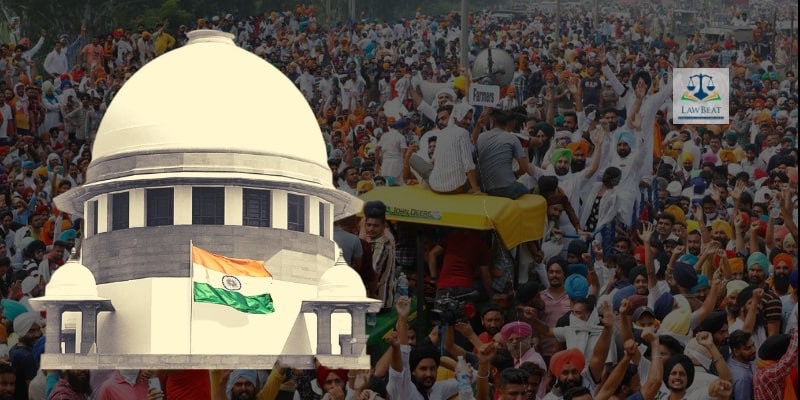"Majority of farmers support Farm Laws": Supreme Court appointed committee release report on Farm Laws

Anil Ghanwat, Member of the Supreme Court Committee on Farm Laws has released the report on farm laws prepared by the committee, stating that majority of the farmers and other stakeholders support Farm Laws.
The report has recommended that a repeal or a long suspension of these laws would be unfair to the silent majority who support the Farm Laws.
In addition to this, it has further recommended that the States may be allowed some flexibility in implementation and design of the laws, with the prior approval of the Centre.
While releasing its report, Ghanwat wrote a letter to the Chief Justice of India, NV Ramana stating that "Since no action was being taken by the Hon'ble Court to either continue the hearings or to release the Report, great uncertainty arose amongst those who had invested time and energy to provide inputs to the Committee."
The letter further said, "The situation today is that the farm laws are water under the bridge. They do not exist. I understand that there is no reason for the Hon'ble Court to either list the matter or to consider it in further any way, such as by replying to my correspondence. The Report, however, is of significant policy interest not just to academics worldwide but to farmers and to government policy makers."
Whereas, the report states that "Around two-thirds of the respondents felt that the Farmers Produce Trade and Commerce (Promotion and Facilitation) Act, 2020 would give more choice to the farmers beyond the APMC mandis and would enable farmers to get a better price for their produce."
Broad Recommendations made by the committee are as follows:
(i) A repeal or a long suspension of these Farm Laws would be unfair to the ‘silent’ majority who support the Farm Laws.
(ii) States maybe allowed some flexibility in implementation and design of the Laws, with the prior approval of the Centre, so that the basic spirit of these Laws for promoting effective competition in agricultural markets and creation of ‘one nation, one market’ is not violated.
(iii) Alternative mechanisms for dispute settlement, via Civil courts or arbitration mechanism, may be provided to the stakeholders.
(iv) The Government should take urgent steps towards strengthening agricultural infrastructure; enabling aggregation, assaying and quality sorting of agri produce through cooperatives and Farmer Producer Organizations (FPOs), and closer interaction between farmers and warehouses/processors/ exporters/retailers/bulk buyers.
(v) An Agriculture Marketing Council, under the chairpersonship of Union Minister of Agriculture, with all States and UTs as members may be fainted on lines of the GST Council to reinforce cooperative efforts to monitor and streamline the implementation of these Acts.
(vi) A large-scale communication exercise needs to be taken up by the Government to alleviate the apprehensions, doubts, and concerns of rest of stakeholders.
It may be noted that the Supreme Court had stayed the implementation of the three farm laws; Farmers’ produce trade and commerce (promotion and facilitation) act, 2020, Essential commodities (amendment) act, 2020; and Farmers (empowerment and protection) agreement on price assurance and farm services act, 2020.
The bench was considering writ petitions filed by Advocate ML Sharma, Chattisgarh Kisan Congress and DMP MP Tiruchi Siva.
The petitions challenge the Farmers Produce Trade and Commerce (Agriculture and Promotion) Act, 2020, Farmers (Empowerment and Protection) Agreement on Price Assurance and Farm Services Act and the Essential Commodities (Amendment) Act 2020.
Case Title: Rakesh Vaishnav & Ors. Vs. Union of India & Ors.
